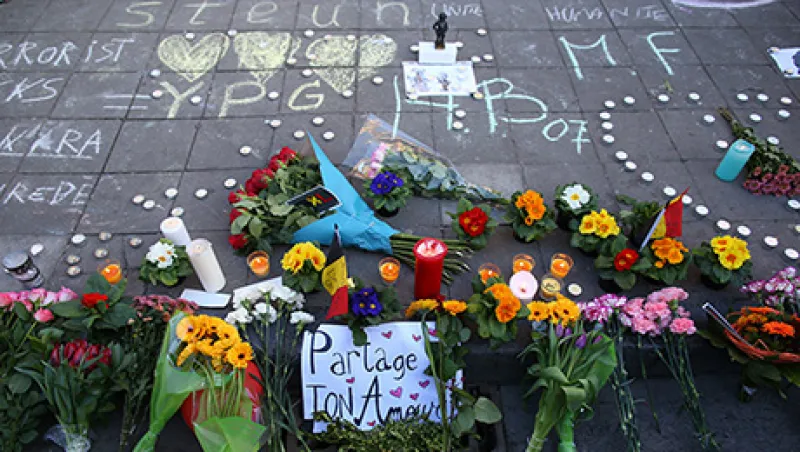By now the ritual of terror has become depressingly familiar. First, the confusion surrounding the initial reports of explosions or shooting, then dread as the death toll mounts and the scale of the carnage becomes apparent. Eventually, CCTV images and other sources reveal the identities of the terrorists, and the blame game starts. In the case of the Brussels attacks, how could known accomplices of the Paris killers hide for months in their own neighborhoods? And if they could evade the authorities and launch a deadly assault, how many more might be laying in wait to do the same?
Having lived and worked in Brussels for several years, and having passed through the now-shattered check-in counter at Zaventem Airport with my family countless times — the latest incident hit home in a personal way. Also, Brussels is the capital of Europe, and the deadliest bomb exploded just down the street from the seat of the European Union’s governing institutions, whose doors I walked through almost every working day. This was an attack on the values Europe aspires to embrace: liberty, tolerance, the peaceful cooperation of different cultures and nationalities.
There are many in Europe who are questioning those values, and their number grows with each attack. Marine Le Pen, the National Front leader who would tear up most of France’s existing EU ties, renewed her calls for a war on Islamic fundamentalism. Nationalist politicians in Germany, the Netherlands, Eastern Europe and other areas have stepped up calls for a halt to immigration and resurrected border controls in places. The attack seems likely to spur the Brexit camp that’s urging the British to vote to exit the EU in the country’s June referendum. Across the Atlantic, Ted Cruz and Donald Trump have turned the Republican nomination campaign into a contest to see who can build the biggest border wall, keep a tighter watch on Muslims at home and unleash greater force against enemies abroad.
No doubt, Western nations can do more to tighten domestic security, reform immigration policies and possibly craft a more effective posture for dealing with the collapse of Syria. But the idea that there are simple solutions — that waterboarding, carpet bombing, tough talk and racial or ethnic profiling can make us safe — is a siren’s song. We have already tried a war on terror, with less than satisfactory results.
We live in an increasingly globalized world. We take for granted that we can travel almost anywhere we’d like to go, whenever we want; enjoy food, music and art from cultures the world over. Companies want to recruit the best talent, wherever they can find it. Investors buy and sell currencies, securites and even real estate from all four corners of the world with a simple click of a button. The tools that make those things possible also enable terrorists to strike far from their bases, and attract disaffected souls with their twisted ideologies. Combatting terror is a long game that requires the U.S., Europe and their allies to marshall all of their diplomatic, intelligence, military, economic and political forces. Most importantly, we need to remember what it is we’re trying to protect. Now is not the time to discard the values we should hold dearest.
In the wake of the latest attack, crowds gathered at Brussels’ Place de la Bourse to create memorials to the victims and write messages in chalk on the pavement. “Spread hope, not fear,” read one. “Together we stand, divided we fall,” read another. That’s a populist message worth spreading.





